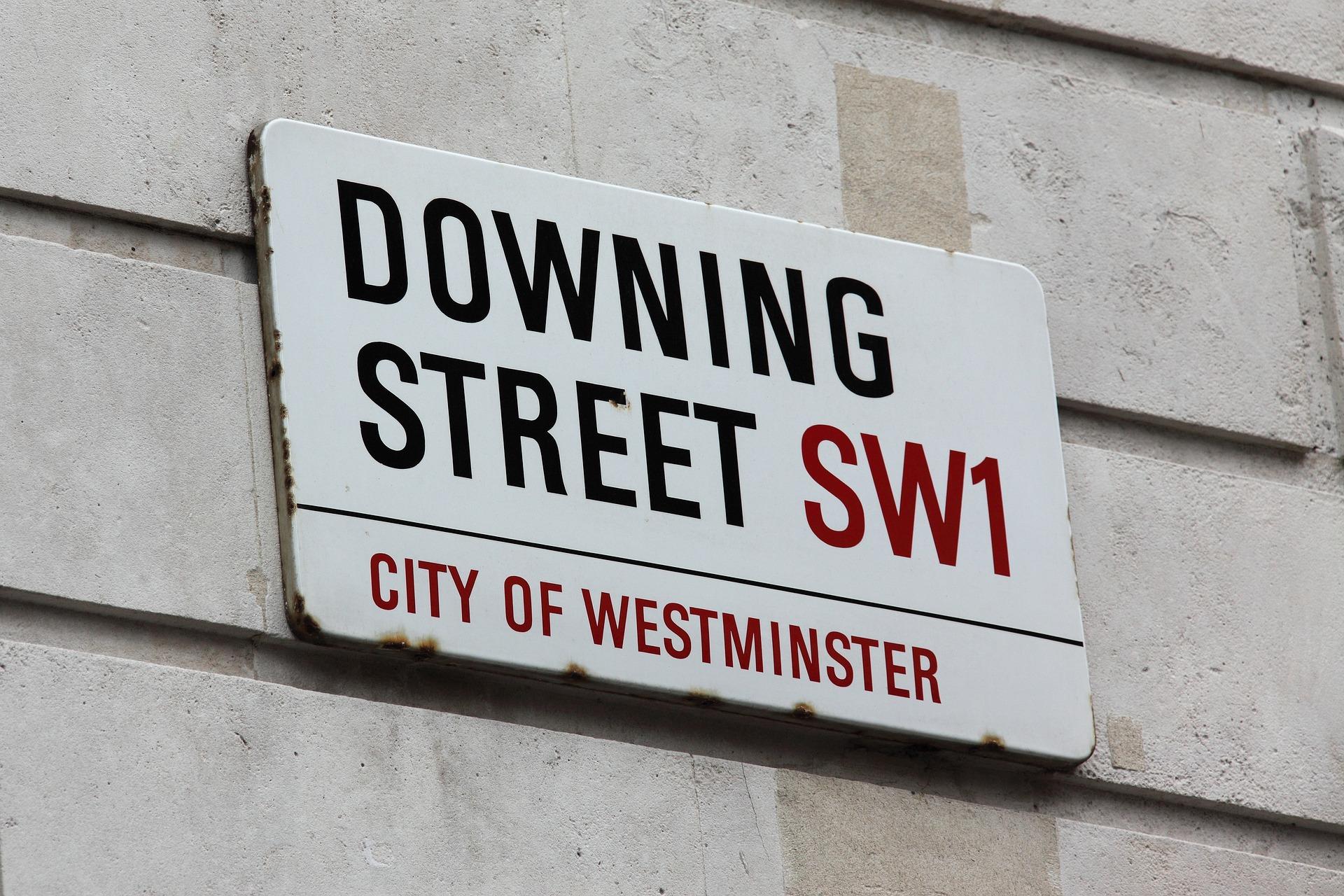A Comprehensive Guide to UK Political Parties, Exploring the Rich Diversity of UK Political Parties and Their Policies, Breaking Down the UK Political Landscape: A Closer Look at Major Parties and Their Agendas, A Comprehensive Guide to UK Political Parties: Leaders, Policies, and More..

What does polarisation mean?
In her Book 'Twiglight of Democracy', Anne Applebaum states: "Unity is an anomaly. Polarization is normal. Skepticism about liberal democracy is also normal. And the appeal of authoritarianism is eternal.”
Polarisation is a word that describes a process, both figuratively or literally, depending on whether the topic of discussion happens to be politics or magnets. While today, we’re talking about the first sense, the use of magnets and their poles as an analogy can help us quickly understand what is meant by the term in its broader contexts.
Magnets as we know are metals whose structures have been polarised in such a way that they generate a magnetic field, each pole (meaning the strongest extremity of the magnetic field) attracting other objects of the opposite charge and repelling objects of the same charge. A magnet can have a varying number of poles, but when we think of magnets, we often think of a dipole, or a magnet that has specifically two poles, usually of opposite charge.
If we go back to the word ‘polarisation’, it should now be pretty obvious that the word simply refers to the process of an object going from not having magnetic poles, to having them.
How does Polarisation work in Polticis?
Using our understanding of the term in its magnetic context, we can now approach its political meaning. Polarisation in politics instead refers to the process by which a topic or idea in discussion can develop opposing viewpoints which attract a certain kind of people, while repelling others. This often adopts a format of ‘for or against’, with one group of people who support a notion or idea, while the other group opposes it.
In science and nature, neutrality and stability is very rare and short-lived, and the same can be said about politics. During the polarisation of a political idea, people who are initially neutral or ignorant of the idea altogether are encouraged by both poles, (which we often also refer to as ‘sides’, ‘camps’, or ‘lobbies’), to join them in their point of view.
Those who remain neutral are often those who are mostly unaffected by the issue, or have friends and family on both sides of the debate, discouraging them from taking a stance lest they show favour for one person over another.
Let’s look at a real example of political polarisation to further understand exactly what it means and how it happens. The use of nuclear power was once a much more divisive and polarising issue than it is today, but the ripples of its media prevalence can still be felt today at the mere mention of the names Chernobyl and Fukushima.
At its conception, nuclear energy was a source of hope and inspiration, met with excitement and enthusiasm; however, it wasn’t long before people started to become sceptical of the dangers of drawing energy from the same source as the atom bombs which levelled entire cities in the Pacific theatre of WW2. The Nuclear disasters at the aforementioned nuclear reactors in Japan and modern day Ukraine quickly galvanised the polarisation of the topic, causing very firmly rooted camps to form, both for and against the use of Nuclear energy.
At the height of the debate, there was likely a diversity of opinions about what humanity should do about nuclear energy, but in a polarised issue, it’s often only the most extreme of uncompromising views and speakers that get a platform in the media. Due to this phenomenon, all of the opinions in between get grouped into their closest pole.
Someone who simply supports regulation and limitation of nuclear energy could be condemned as simply ‘anti-nuclear’ and someone who believes that nuclear science should be funded, whether their reasoning is for profit, or for better understanding and safety of nuclear plants, would still be labelled as ‘pro nuclear’.
In politics, polarisation is ‘self-perpetuating’. We can define self-perpetuating as something that contributes to its own continuation, which is very ironically similar to a nuclear reaction, hence why I chose the example.
One last note on the etymology of the word ‘polarisation’, you might have noticed that polar and political share the same root word of ‘pole’. This is no coincidence, which is why magnets are so convenient as an analogy. Ultimately, a pole is simply something or somewhere around which stuff, whether it's magnetic fields or people, gather together.

The Effects of Political Polarisation
Once a topic has become polarised, it can lead to various situations and outcomes. One of the most consistent outcomes of political polarisation is that the topic or issue becomes partisan, meaning that one of the extremes is taken up and supported by the left wing of politics and the other by the right. The pre-existing ‘us against them’ narrative of media and politics has exacerbated political tribalism in almost every mainstream issue.
Often times, the idea, or issue loses its original relevance to society or meaning and gets lost in the jumble of partisan politics as just another stance used to identify people’s leanings. Other tribalist aspects can be seen in certain political issues, where instead of simply arguing for or against the idea, partisan political commentators and especially political leaders attack the people themselves, i.e. those upholding the opposing belief.
Case Study—Political Polarisation in History
For example, if we think back to the nuclear threat and the Cold War, people who didn’t support the involvement of the west in the various eastern wars over the spread of communism, were quick to be lumped in together under the label of ‘hippies’. Language is a powerful tool in politics, so all it takes is for this new group of ‘hippies’ to be associated with the fears of the time, and the image of the opposition.
The media at the time painted a picture that ‘hippies’ were all ‘stoners’ and hedonists, who only cared about their own pleasure and comfort. They were labelled as criminal and unintelligent, due to their partaking in drugs like cannabis, which were conveniently very demonised at the time.
Now with the power of hindsight we can see that while there were perhaps certain correlations between groups who believed certain things, most of the rhetoric was in fact partisan exaggerations of the perceived negative attributes of their opposition. With this in mind, we can think of a ‘polarised’ issue, as another word for partisan.
Thus far, we’ve made polarisation seem like quite the negative phenomenon, but since we’re trying to be neutral ourselves, let's talk about some of the positives. I’m sure that if you think for a few minutes, you can come up with an issue that you think isn’t talked about enough on the world stage; maybe you can think of a change you’d like to see in the world.
Political polarisation can sometimes serve the interests of the people by amplifying and broadcasting the issues and topics that we care about to our wider community. The current systems in the west, despite their flaws, do a decent job of giving people a voice. If you have something you want to share, you can petition your local government about it by sending them a proposal or idea which you’ve backed with the signatures of people who share your opinion. The amount of signatures needed depends on the size of the government body you’re appealing to.
What this means is that any determined enough person can gather the requisite signatures and force their government to discuss an issue that enough people agree is important. On a smaller scale, this can be thought of as an individual polarising an issue and serves to show that polarisation is not always synonymous with division and opposition.
Are there benefits to Political Polarisation?
The other main benefit of political polarisation is the way it interacts with proactivity and productivity. A lot of us hate the divisive nature of politics and the way it turns everyday people from friends to enemies over seemingly trivial issues, but the value of politics can’t be denied, since without the never ending discourse of ideology, economics and policy, nothing would ever change or get done.
The polarisation of what we call normal and accept as part of the status quo is what ultimately achieves social and economic progress. If we were never polarised about sex, women might still be without the vote and similarly, if we were never polarised about race and slavery, the slave trade might still have been alive and booming to this day. What seems like a completely outlandish and reprehensible political position today was once just the normal view that most people held or didn’t dare to question.
When we look at political polarisation through this lens and reflect on the political figures of old who took a stand and decided to change things for the better, I’m sure we would all agree that even as a necessary evil, the polarisation of certain issues has served its purpose as a way of motivating and stimulating important change.
Whether we consider ourselves to be politically right or politically left, we should use this understanding of politics to help us identify when the next rather radical minor case deserves our attention and which of the seemingly insignificant problems of today might form the world we live in tomorrow.

Afterword
I hope you enjoyed this article and were able to learn something, or at least refine your understanding of polarisation in a political context. We have plenty more articles of the same disposition here on the Superprof blog, including more on politics as a field of study and many other topics. So, take the time to browse, and we’re sure you’ll find something that takes your interest. Until next time!
Summarise with AI:















